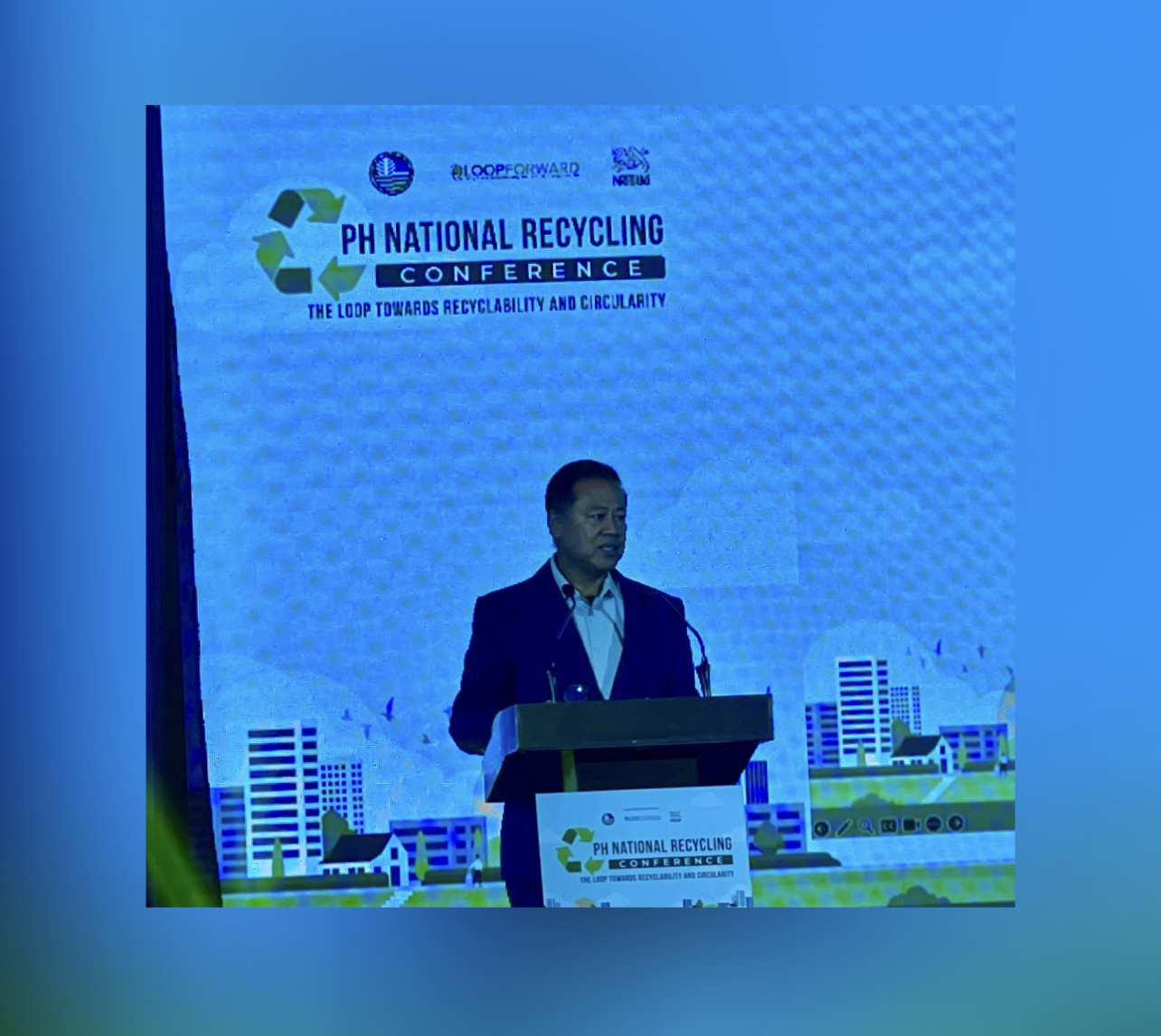
The Philippines lacks recycling infrastructure to address the mismanagement of plastic waste in the country, the Department of Environment and Natural Resources (DENR) said during the Philippine National Recycling Conference at Mariott Hotel Manila in Pasay City on Thursday, February 22.
“[The Philippines lacks recycling infrastructure] kasi linear [economy] pa rin tayo (The Philippines lacks recycling infrastructure because we still have a linear economy),” DENR Undersecretary Jonas Leones said in an ambush interview.
“What we need is recycling of the plastics, we need infrastructure or recycling, upcycling and repurposing of these plastics,” he went on.
In a linear economy, products are produced, utilized, and discarded, resulting in waste. A circular economy promotes sustainability while lowering environmental effect by reusing, recycling, and minimizing resources.
Leones said it is potent for the Philippines to invest in infrastructure for solid waste management and recycling for the country to transition from a traditional linear economy or the take-make-dispose model to a circular economy. Per the agency, the circular economy transition involves strategies like product-as-a-service models, take-back programs, and innovative product design approaches, necessitating investments in technology and infrastructure.
“Investing in infrastructure for solid waste management and recycling is vital for achieving circular economy in the Philippines,” he underscored.
He added that: “Facilities such as waste collection centers, recycling plants, material recovery facilities need to be established… These infrastructure will enable efficient sorting, processing, recycling of waste materials, losing the dependence on landfills in promoting circular economy…by identifying technologies that can recycle, upcycle, and repurpose the plastic waste.”
For her part, Deegee Uy-Anastacio, Nestle Philippines’ vice president and head of government and industry affairs, said the environment department and Nestle found out in the roundtable discussions they held in key cities that there is a lack of recycling technologies and infrastructure in the Philippines.
“The multisectoral discussions highlighted major concerns, challenges, and needs. One of the most highlighted challenges is the serious lack of recycling systems in the country especially recycling technologies and infrastructure. This has been identified as a need that has to be prioritized,” she said.
The Philippines’ solid waste management, according to Leones, remains to be “hampered by gaps and issues.”
“One of these issues involves plastic waste whose impacts have extended beyond the country’s territorial boundaries. Studies have shown that the Philippines, together with China, Indonesia, Thailand, and Vietnam, accounts for 55 to 60 percent of plastic waste entering the ocean,” he stated.
“Waste management has become [a] pressing global challenge that affects public health, border security, food supply chain, climate action, and disaster risk reduction.”
The DENR official noted that the Philippines has one of the highest rates of mismanagement of plastic waste globally.
Citing The World Bank’s 2019 data, Leones said 70 percent of the material value of plastic is lost in the Philippine economy.
“If only we can harness this plastic, there will be additional income of about 790 to 890 million USD per year,” the DENR official noted.
Based on the data of the DENR, the Philippines produces 61,000 metric tons (MT) of waste every day.
Such equates to roughly 163 million sachet packets, 48 million shopping bags, and 45 million thin-film bags.
Of the 61,000 MT of waste, the environment department said 33 percent ends up in landfills and dumpsites. Meanwhile, 35 percent of the said waste is leaked into the open environment and oceans.